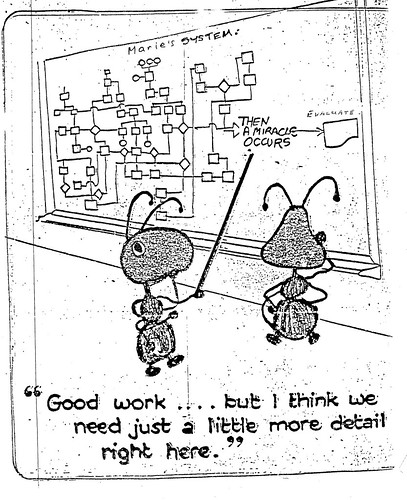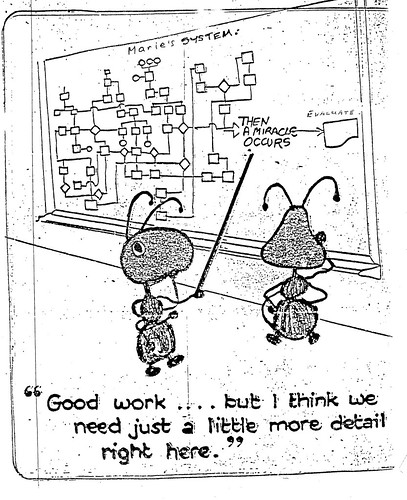I'm preparing a talk on the pros and cons of social networking, with some tips on keeping safe. The talk is going to be to a group of 6th formers (ie 17-18 year olds).
I've been doing my own research to see how many social networks these youngsters belong to, and it turns out to be a modest 2 or 3 on average. Then I made a list of the ones I belong to, and had a bit of a shock.
I currently belong to -- wait for it -- 63 social networks. I say "currently" because I am about to join more, and look at another one without joining it, to see what they have to offer. The reason I don't wish to join the second one is that it's for teenage girls. (I'll come on to why I'd want to look into such a network in a second.)
Of course, it all depends on how you define "social networking". The website What is Social Networking says:
"Social networking is the grouping of individuals into specific groups, like small rural communities or a neighborhood subdivision, if you will."
That sounds pretty accurate, although I'm inclined to go further. I come from an Economics background, and I quite like the economist's definition of money:
"Money is as money does."
It takes a bit of getting used to at first, but actually it's a succinct version of the observation by Douglas Adams:
"If it looks like a duck, and quacks like a duck, we have at least to consider the possibility that we have a small aquatic bird of the family anatidae on our hands."
So, applied to social networking: if it looks like a social network and people behave in it as though it were a social network, then it's probably a social network.
On that basis I have lumped together a whole load of applications that enable me to post messages, see other people's messages, comment on those messages, share files and follow or befriend people. In other words, I've included social bookmarking applications, video sharing websites, general social networks like Facebook, specific or focused social networks like Wired Journalists, and what I suppose we might call quasi-social networks like Friends Reunited.
Why is any of this important? Before I go into that, let me just explain why I'd want to look at a teenage girls social network -- and I can assure you that it is not for the sort of reasons you might think! I was reading in an article on social networking in Information Age about the benefits to business of social networking, and it mentioned a site called BeingGirl, maintained by Procter and Gamble. The article states:
"The same technologies can be applied in a marketing capacity. Involving customers and prospects in a community built around products and brands is proving to be a powerful way to maintain loyalty and engagement.
Procter & Gamble is one notable leader here with its BeingGirl website. The social network provides an environment in which young girls discuss and get answers on many of the awkward topics that arise as they enter their early teenage years, with P&G introducing marketing material for its relevant products at pertinent points."
So I am interested in questions like, does this look like a genuinely useful site for girls? What's the product placement actually like? Is one of the things we should be educating kids about the fact that product placement goes on (including in television programmes)?
I'm coming at this from a number of angles.
Firstly, I see nothing wrong in companies deciding to start a social network in order to engender customer loyalty. Ten years ago I signed up to The Beano website. The Beano is a comic which has been part of the British comic landscape for what seems like forever, and is full of cartoon strips that are so stupid as to be hilarious. Now, the Beano website had all sorts of silly features on it, and it was just a good laugh. And it was an example of product placement.
Another example: I myself started a social networking site called ICT in Education. I stopped promoting it or nurturing it because I felt that it was actually diverting attention from my main website -- although I haven't shut it down because there are nearly 200 members who may be upset if I did so. Given that I often mentioned my articles in discussions where I felt such a reference would be useful to people, that was a vehicle for product placement too.
Secondly, issues like product placement have always been important. Or, to put it more generally, media literacy has always been important to teach. Right from the time I started teaching I made it clear to my students that they should always look not just at what is being said, but who is saying it, and what they're not saying. Nothing new about that.
Thirdly, if people find a social networking site like BeingGirl useful and helpful, and the products are good, that's what's known as "good customer service" isn't it?
So what does this have to do with my talk?
Well, it seems to me that a question like "What are the pros and cons of social networks?", and the supplemental question "And how do you keep safe in them?" raise a number of issues. Taking the first one first:
- The answer will differ according to whom you ask. The advantage of BeingGirl for P & G is, presumably, marketing opportunities and (hopefully) customer loyalty. The advantage for a young girl is the facility for discussing issues and getting advice.
In addition, the answer will depend on:
- The exact nature of the social network.
- How active it is.
- Who belongs to it.
- What sort of facilities it offers.
- The quality of the information posted on it.
- The quality of the discussions posted on it.
- The quality of the resources that people share on it.
As for the pros and cons of social networking sites in general, for me it's the same as the pros and cons of social networking, ie interacting with other people, per se.
The answer to the second question, about safety, must partly depend on how one defines "safety". Everyone seems to think in terms of sexual predators, but without wishing to denigrate the importance of that in any way, it does strike me as a somewhat narrow definition. What about identity theft? What about safety from economic predators?
(I was looking at a website this morning on which people can post their stories and articles and earn a share of the advertising revenue. The "small print" says that the site owners reserve the exclusive right to use your work forever, and also to do with it as they like, including chopping it up, featuring it anywhere they like, and so on. Loads of people have posted their stuff on this site, thereby depriving themselves of other sources of income from that work in the future. I hope their earnings from the advertising revenue compensate them for that cost. Shouldn't we be making sure that youngsters are aware of the importance of not selling the family jewellery as it were?)
What about protecting your reputation, or ensuring the "safety" of your future job prospects?
As for why I belong to so many: it's because they mostly do different things. Where I am a member of two or three that do the same thing, it's because I like to try things out. And, to be honest, I'm active in only about three or four of them. Let's face it: if I were active in all of them I'd be spending at least a day a week socially networking online!
I guess that's one of the big disadvantages of social networking: it can be so time-consuming!
This article was first published on 3rd February 2009.
 Get smartOne way in which to achieve that is to make sure that the technology is used in a relevant way, and not merely for its own sake. I saw some great examples of relevant use yesterday, when I visited Scargill Junior School in the London Borough of Havering. Interactive Whiteboards, Visualisers and a variety of handheld devices were being used in numeracy and literacy classes, and we also saw or were told about other inspiring examples in subjects like science and PE.
Get smartOne way in which to achieve that is to make sure that the technology is used in a relevant way, and not merely for its own sake. I saw some great examples of relevant use yesterday, when I visited Scargill Junior School in the London Borough of Havering. Interactive Whiteboards, Visualisers and a variety of handheld devices were being used in numeracy and literacy classes, and we also saw or were told about other inspiring examples in subjects like science and PE.







